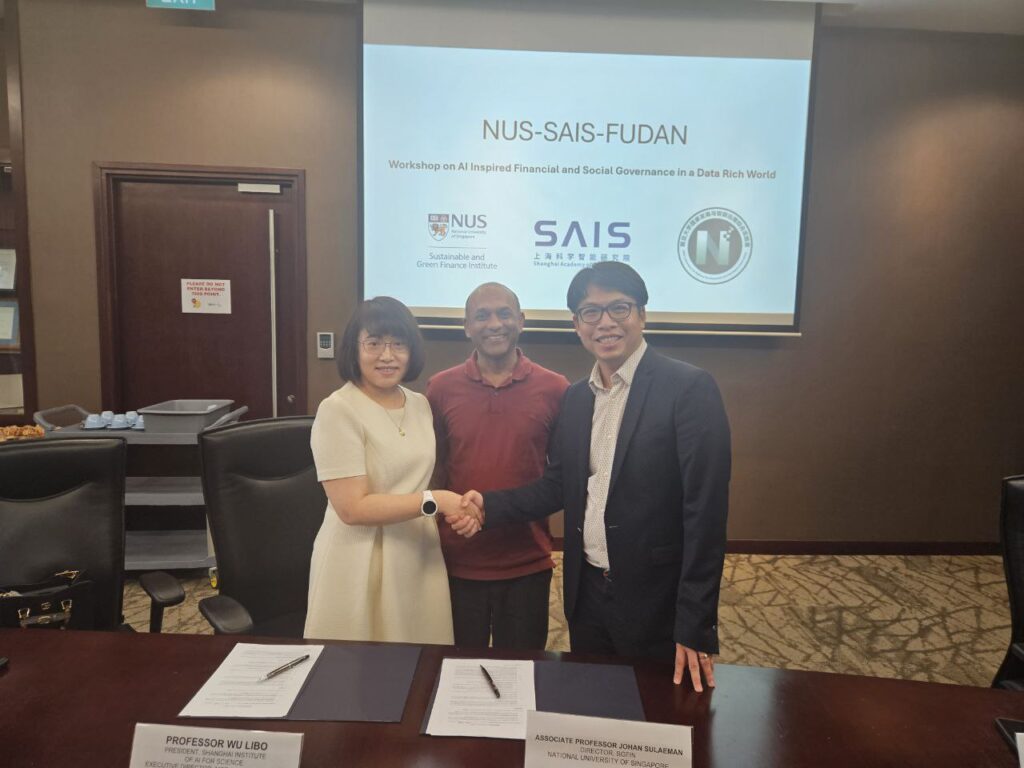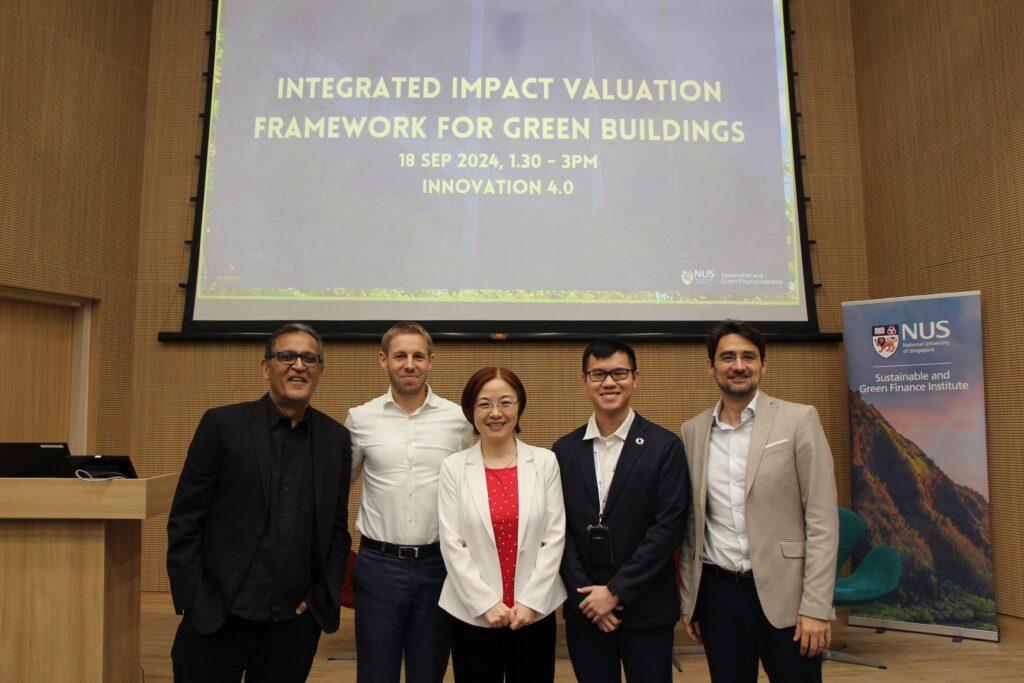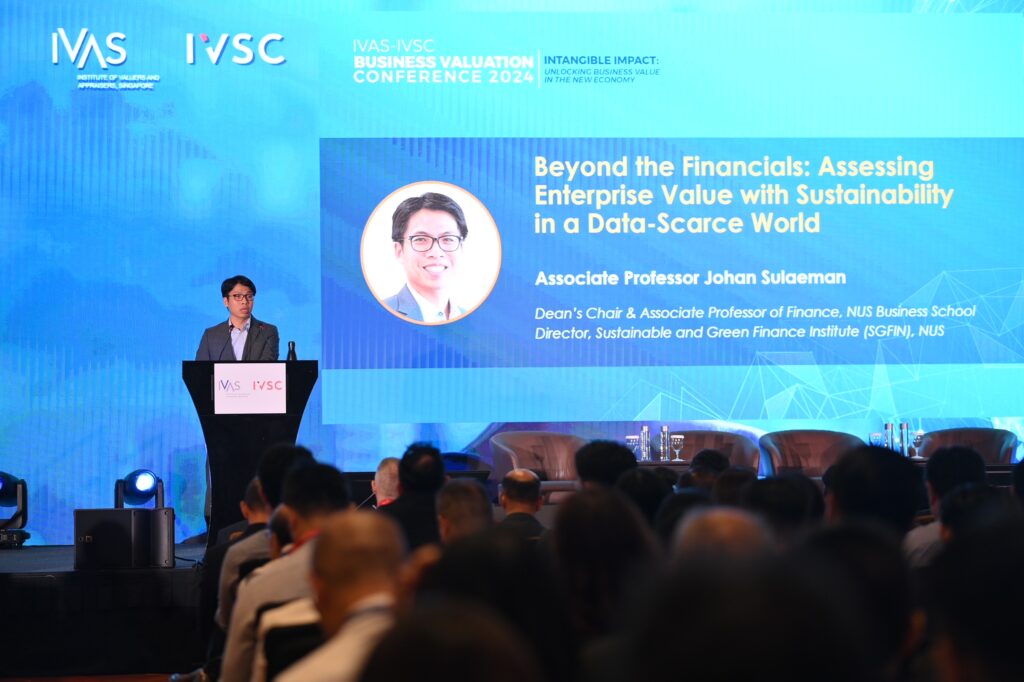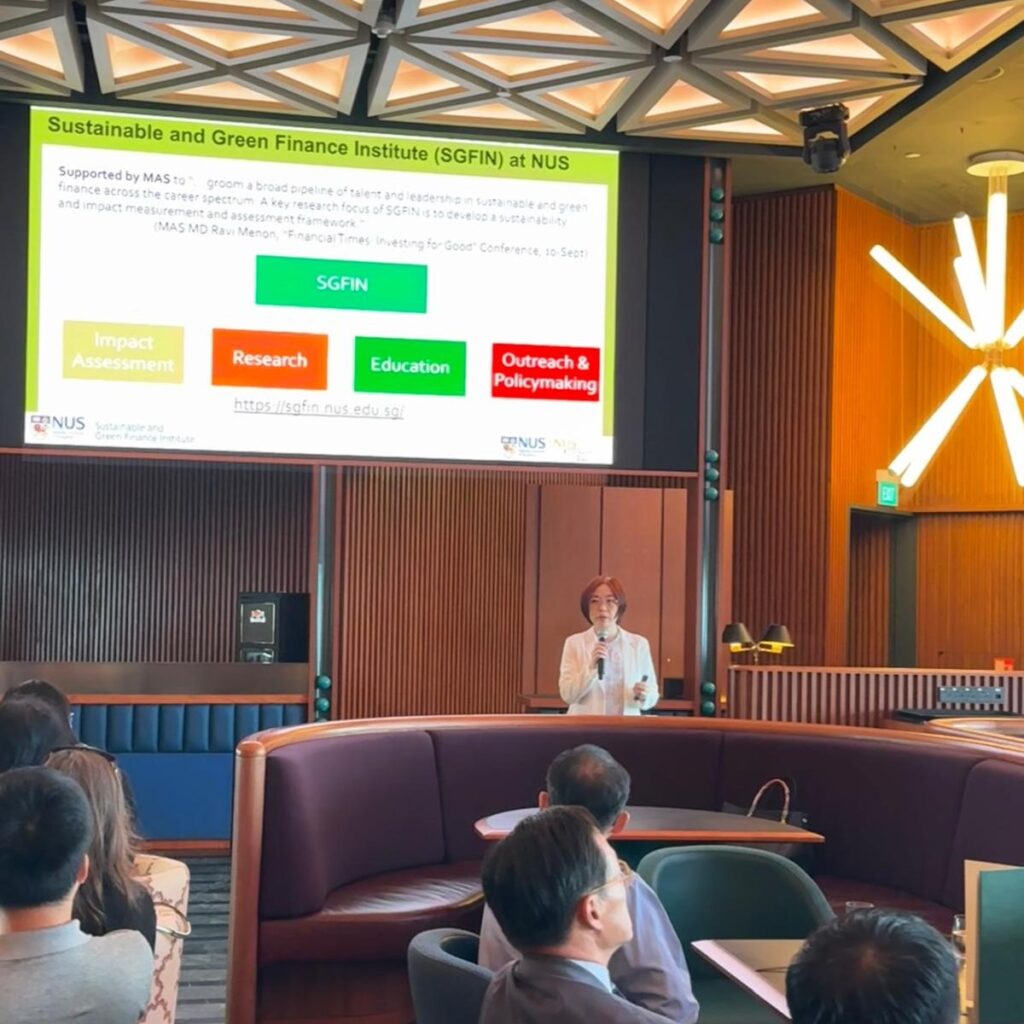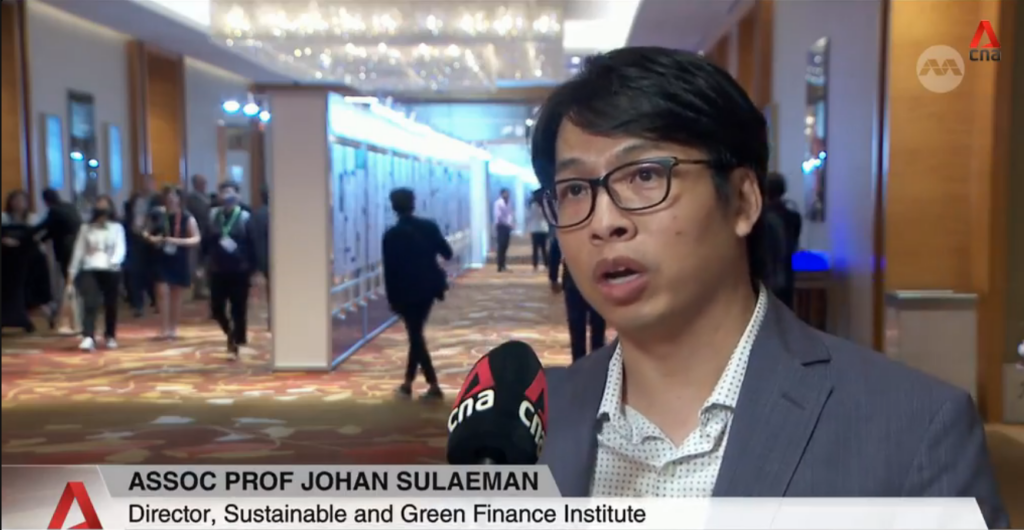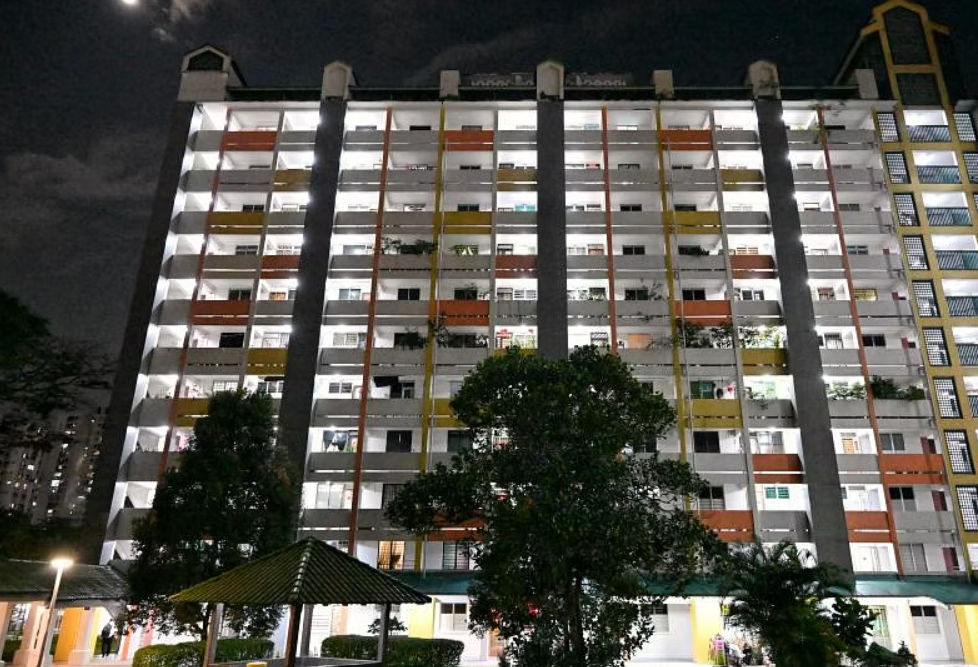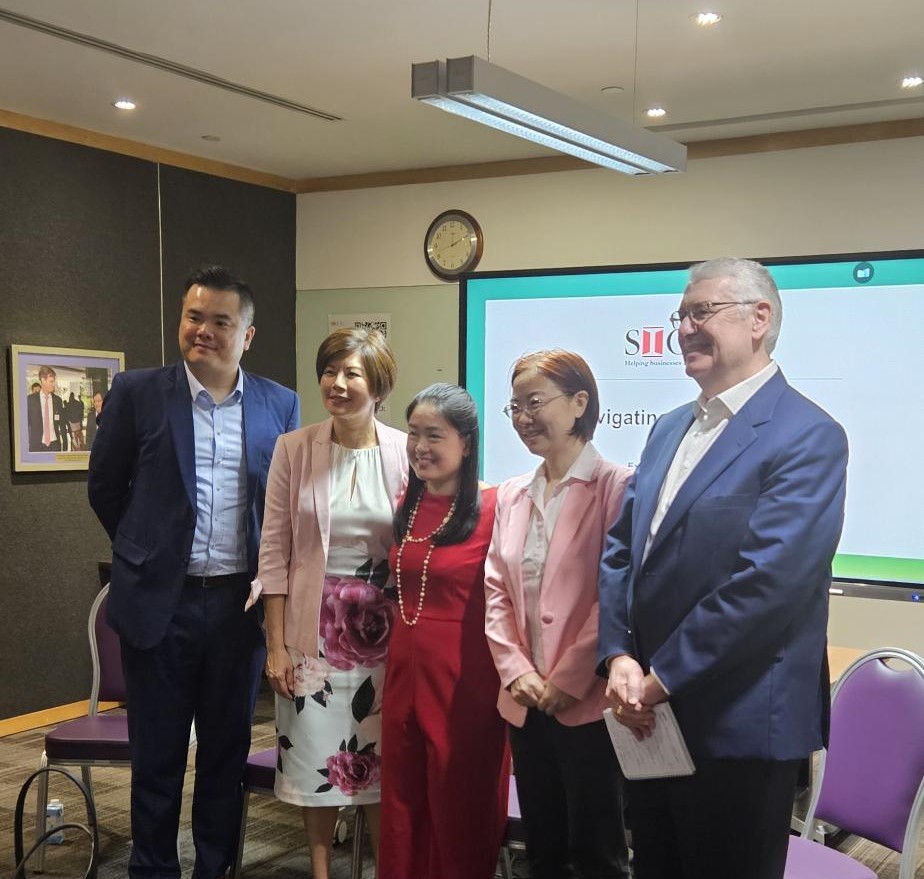Memoranda of Understanding with MOE Laboratory for National Development and Intelligence Governance and Shanghai Academy of AI for Science
Launch of Integrated Impact Valuation Framework for Green Buildings
On 18 Sep 2024, SGFIN unveiled its whitepaper, “Integrated Impact Valuation Framework for Green Buildings,” at an event featuring industry and academic leaders. Prof Zhang Weina provided a comprehensive overview, highlighting the whitepaper’s holistic framework which integrates 13 established building standards and utilization of the IROI (Integrated Return on Investment) methodology, which evaluates economic, environmental, social, and governance (EESG) factors alongside traditional financial metrics. The panel discussion that followed further underscored the critical role of policy changes and societal recognition of sustainability in maximizing the framework’s potential impact.
Symposium on Innovative Environmental Solutions for Accelerating the Low-Carbon Transition
On 17 Sep 2024, the NUS Environmental Research Institute (NERI) hosted the hybrid Symposium on Innovative Environmental Solutions for Accelerating the Low-Carbon Transition, as part of NUS Sustainability CONNECT Highlight. The event featured key innovations from NUS researchers and partners and emphasized the importance of collaboration in turning innovative ideas into scalable solutions for a sustainable future. Prof Johan Sulaeman, Director of SGFIN, presented SGFIN’s contributions, namely the Corporate Carbon Footprint Assessment, ESG Data Primer and Sustainability Data Integrity projects. Notably, he had addressed similar topics at the Lee Kuan Yew School of Public Policy Festival of Ideas 2024.
Brown Bag Lunch Talk: An Introduction to the Social Return on Investments and Its Application to a Health Promotion Project
On 12 Sep 2024, Prof Zhang Weina delivered a presentation at Brown Bag Lunch Talk: An Introduction to the Social Return on Investments and Its Application to a Health Promotion Project, organized by the National Healthcare Group. During the session, Prof Weina explained the SROI methodology, outlined the steps for conducting an SROI analysis, and demonstrated its application in an NHG health promotion project aimed at improving the eating habits of students. To maximize impact, Prof Weina emphasized the critical need for students to be equipped with the necessary knowledge, skills, and mindset, alongside effective national scaling efforts and collaborative action from multiple stakeholders.
IVAS-IVSC Business Valuation Conference 2024 | Intangible Impact: Unlocking Business Value in the New Economy
At the IVAS-IVSC Business Valuation Conference 2024, SGFIN Director Prof Johan Sulaeman spoke on the theme “Intangible Impact: Unlocking Business Value in the New Economy” and discussed the critical role of corporate sustainability as an intangible asset in driving business value. While other speakers emphasized intangible assets like R&D and branding, Prof Johan focused on sustainability, particularly the inconsistencies arising from the lack of a universal reporting standard. He highlighted that although environmental metrics such as GHG emissions are frequently reported, social data’s impact on enterprise value remains difficult to quantify. He introduced SGFIN’s AI-driven equity valuation model, which links corporate valuation to environmental metrics, demonstrating that higher GHG emissions negatively impact stock market valuations, pricing each ton of CO2e emissions at around US$60-80.
Integration of Executive Pay with ESG
In a Business Times article discussing the integration of executive pay with ESG criteria, Dr Sean Shin shared his insights on the challenges companies face in implementing ESG-linked compensation and offered some advice on how to address these obstacles.
Braxton Partners Series Luncheon | Making an Impact: Accelerating Growth in Southeast Asia
On 25 Jul 2024, Prof Zhang Weina participated in the Braxton Partners Series Luncheon and joined in the discussion on the topic: “Making an Impact: Accelerating Growth in Southeast Asia.” Several speakers shared their stories and views. Prof Weina, in particular, shared valuable insights on internalizing externalities in sustainable investing.
SGFIN Research Collaboration with ACRA on Singapore Climate-related Disclosures
On 8 Jul 2024, findings from the joint SGFIN-ACRA study on climate disclosures by 51 larger listed companies were released. Some key insights include:
- While there are still improvements to be made, large Singapore companies are making good progress in climate reporting. “Good progress” can be defined as companies disclosing key TCFD elements – Governance, Strategy, Risk Management, and Metrics and Targets. This is an important step towards higher standards, placing them in a good position to report using the ISSB standards eventually.
- A comprehensive understanding and complete disclosure of climate risks’ magnitude and relative significance are crucial. This allows for more informed investment decisions, enhances transparency, builds trust with stakeholders, and enables companies to prioritize their risk management efforts effectively.
- Disclosing interim milestones and pathways is vital for tracking progress towards net-zero goals. It helps break down the task of achieving net zero into smaller and more actionable steps, reduces the likelihood of greenwashing, and demonstrates genuine commitment.
- Three key factors are essential for effective climate reporting: People, Data, and Experience. We need people with the necessary knowledge and skills to manage and use climate data effectively; reliable data is crucial for accurately measuring carbon emissions; and experience is vital, making it imperative for companies, especially SMEs, to start their climate reporting efforts early.
ACRA report | Straits Times Online | Business Times Online | Zaobao Online | CNA News (TV) |
CleanEnviro Summit 2024 Singapore: Panel on Low-Carbon Transition
On June 19, 2024, Prof. Johan Sulaeman, Director of SGFIN, moderated the Low-Carbon Transition panel at CleanEnviro Summit Singapore 2024, joined by Mr. Adrian Ow from UOB, Ms. Eu-Lin Fang from PwC Singapore, and Mr. Keishi Takemasa of Modern Asia Environmental Holdings Pte Ltd. The panel highlighted the growth in financing for solar energy and electric vehicles but emphasized the need for more economy-wide low-carbon transition funding. They discussed promising technologies like small modular reactors, low-carbon hydrogen, carbon capture, energy from food waste, and nature-based solutions, as well as financing for SMEs and circular business models. Despite commercialization and bankability challenges, the panel underscored the necessity of bringing these technologies to market to meet low-carbon goals, suggesting blended financing to mitigate risks and attract capital.
Reduce, Reuse, & Recycle: Singapore’s Waste Production Decreases, But Recycling Rate Slows
Findings from the National Environment Agency (NEA) show that Singapore has been producing less waste since 2013. This highlights more efficient usage of resources in Singapore. However, the recycling rate in Singapore has also declined. The NEA is keen to rectify these issues to maintain Singapore’s cleanliness and livability. In addition, commercial entities are developing innovative methods to reduce or repurpose waste.
In an interview with CNA at the sideline of CleanEnviro Summit Singapore 2024, Professor Johan Sulaeman, Director of SGFIN, emphasizes the importance of educating the younger generation on recycling practices.
In a separate interview with CNA938, Professor Sulaeman delves further into the topic, and explains how the younger generation can, in turn, educate the older generation, who may be more resistant to changing their mindset and behaviour. Reducing waste and recycling more are crucial for a lower footprint of humanity on a more sustainable planet.
Additional progress towards hydrogen for power generation in Singapore
Dr David Broadstock was invited to comment on the announcement by the Energy Market Authority of Singapore of a call for proposals for new hydrogen-ready power generation equipment.
Singapore International Chamber of Commerce: Navigating Green Finance
At the Singapore International Chamber of Commerce’s Sustainability Event Series, SGFIN’s Prof. Zhang Weina participated in the Navigating Green Finance panel discussing how green finance can enhance ESG outcomes while tackling greenwashing. Key takeaways included the pervasive issue of greenwashing and its variant, green hushing, in various sectors. The discussion highlighted trends in sustainable finance in Asia, the critical role of SMEs, the impact of technology on sustainability, and the importance of talent development. Emphasizing the need for internal capability building, comprehensive taxonomies, and workforce upskilling, the event underscored the integral role of integrating ESG into operations for effective risk management and environmental solutions.

